Yoon Suk Yeol has become South Korea’s first incumbent president to be arrested after he was charged with insurrection for declaring martial law last month and thrusting the country into political turmoil.
Mr Yoon, 64, was arrested on 15 January and taken to the Corruption Investigation Office for questioning.
The president was impeached by the National Assembly over his shortlived martial law declaration on 3 December and suspended from office.
Appearing defiant in a video message recorded for his supporters before he was taken in for questioning, Mr Yoon said he had decided to comply with the arrest warrant but that the “rule of law has completely collapsed in this country”.
“When I saw them break into the security area using firefighting equipment today, I decided to respond to the CIO’s investigation – despite it being an illegal investigation – to prevent unsavoury bloodshed,” he said in a statement.
Insurrection is one of the rare offences for which South Korean presidents are not granted immunity. The offence carries severe penalties that may include life imprisonment or even the death penalty.
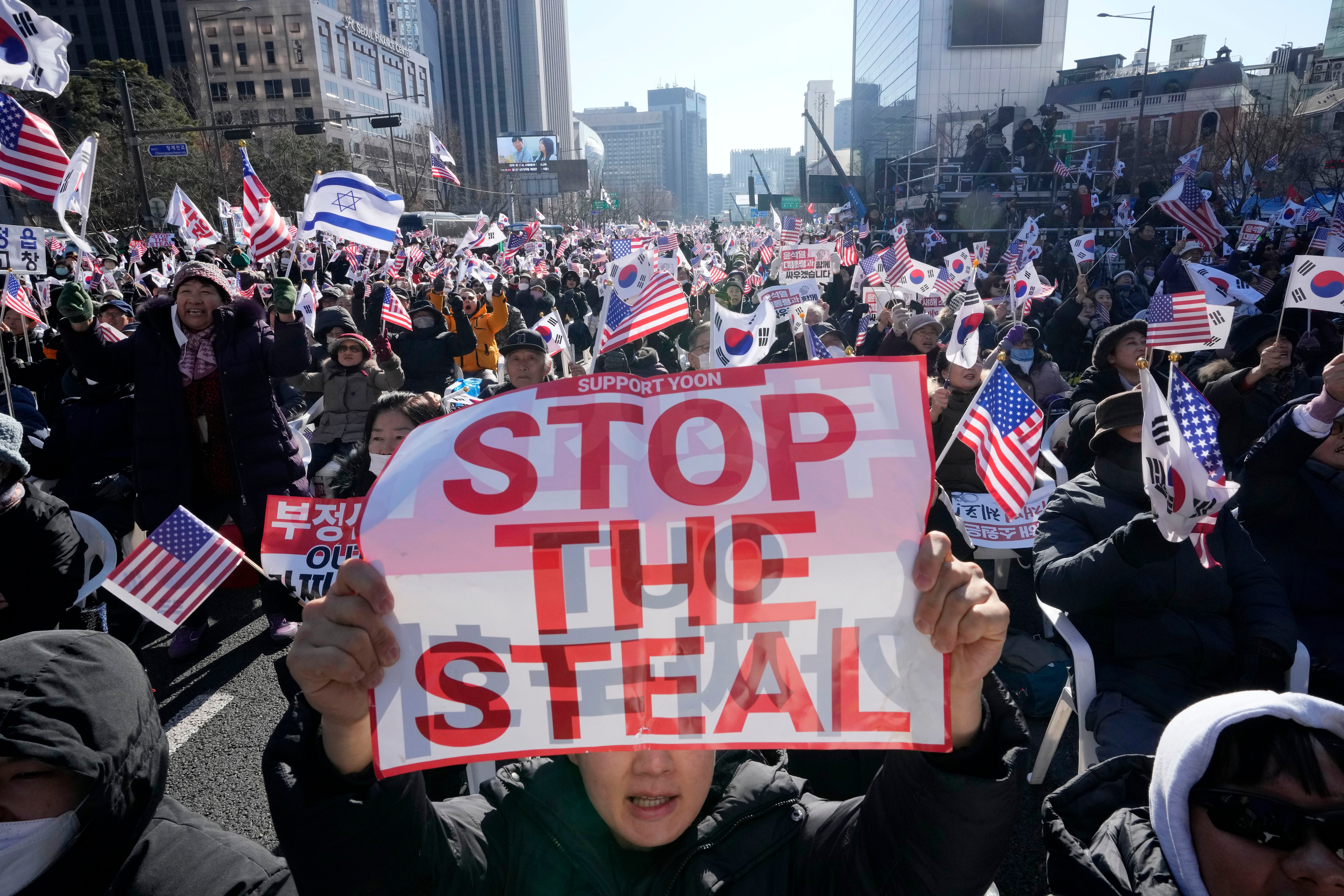
The arrest came a day after the Constitutional Court began proceedings to rule on the validity of Mr Yoon’s impeachment by parliament. If the court clears the parliamentary action, Mr Mr Yoon would be removed from power and a presidential election would be held within 60 days.
If found guilty of insurrection, Mr Yoon could receive a maximum sentence of life imprisonment, with the death penalty a highly unlikely but potential outcome as well.
An embattled leader
Mr Yoon, who narrowly won the presidency in 2022, has been facing mounting unpopularity since taking office. Already weakened by a crushing parliamentary election defeat for his party earlier this year, his approval ratings had plummeted to 17 per cent before this week’s events.
The chaos began when Mr Yoon justified his martial law declaration citing threats from North Korea and the need to eliminate “anti-state elements”.
But the move was widely interpreted as an attempt to consolidate power in the face of his domestic struggles. Within hours, lawmakers, some from his own People Power Party, rushed to the National Assembly to block the order, while thousands of protesters took to the streets in Seoul.
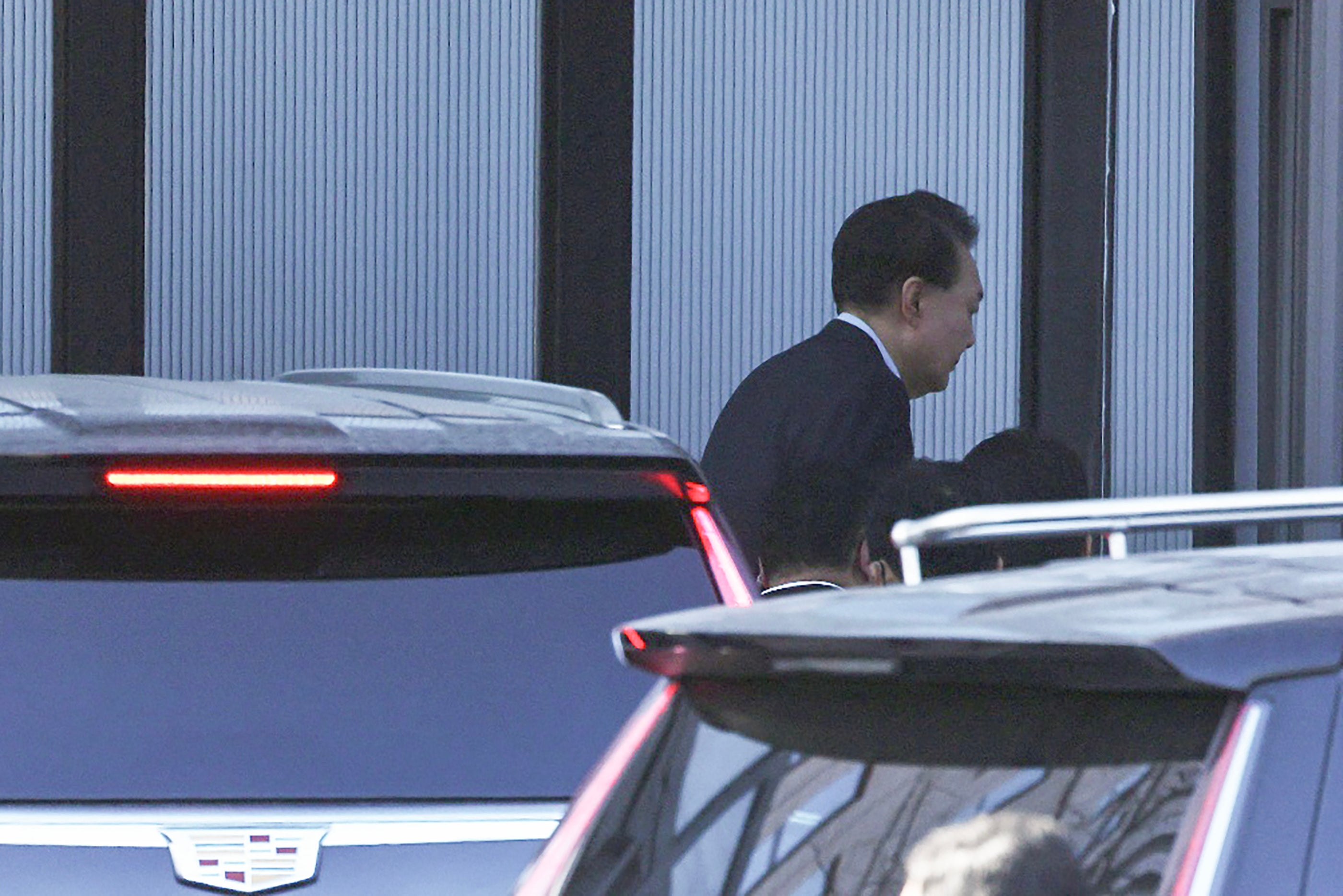
By the time Mr Yoon withdrew the decree, the protesters outside the National Assembly were cheering, but the damage to his presidency appeared irreversible.
Mr Yoon’s declaration of martial law was a “legal overreach and a political miscalculation”, Prof Leif-Eric Easley of Ewha Womans University in Seoul told BBC News.
“He sounded like a politician under siege, making a desperate move against mounting scandals, institutional obstruction, and calls for impeachment.”
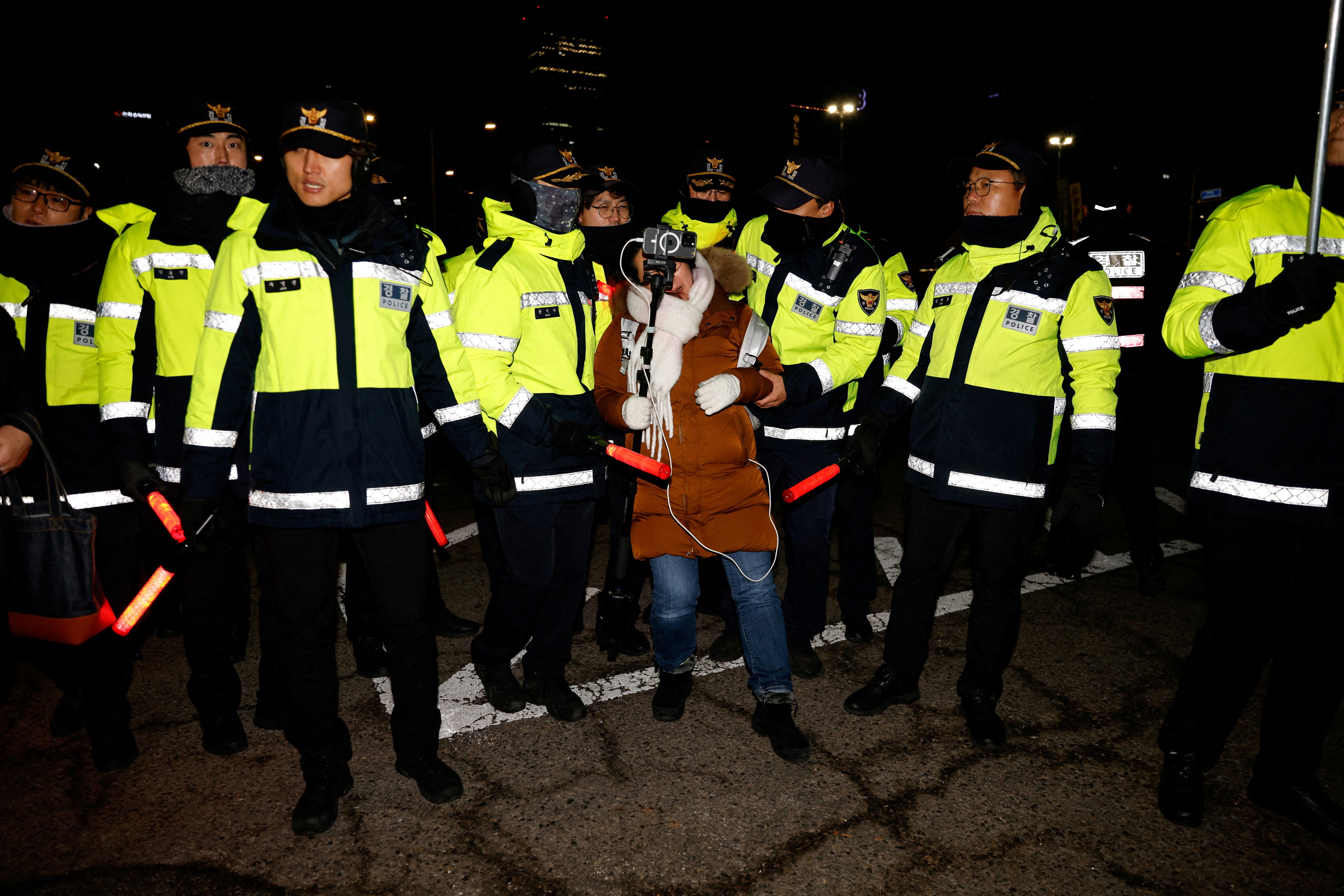
A presidency marred by controversy
Mr Yoon’s presidency has been turbulent from the start. Mr Yoon was a prosecutor before entering politics and gained national prominence for spearheading the corruption case against former president Park Geun-hye. His lack of political experience was evident after he narrowly defeated liberal candidate Lee Jae-myung in 2022.
While Mr Yoon’s campaign resonated with younger male voters due to its anti-feminism rhetoric, public hopes for “principle, transparency, and efficiency” under his leadership were soon dashed, Prof Don S Lee from Sungkyunkwan University told the British broadcaster.
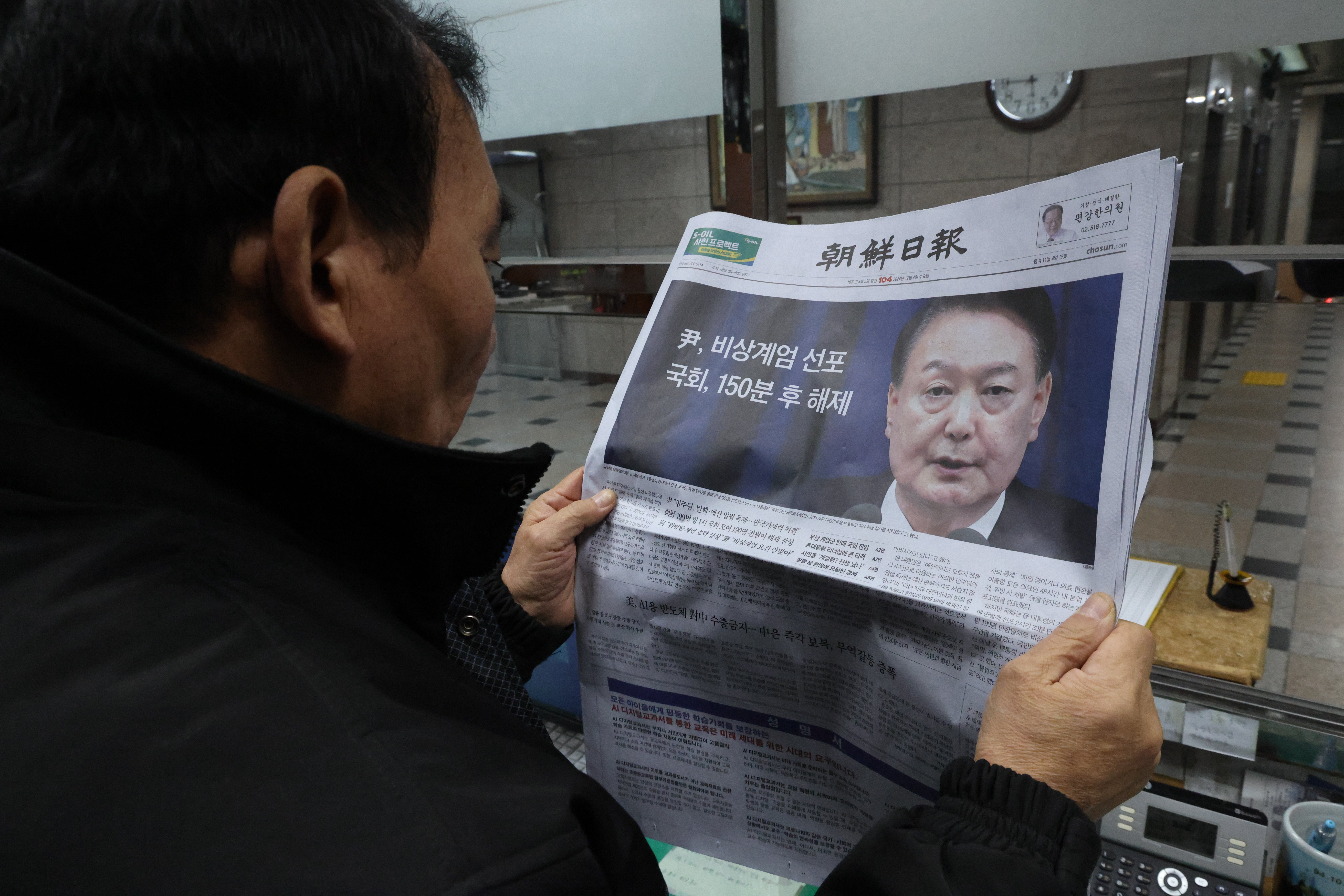
Mr Yoon’s tenure has been plagued by scandals, many centring on his wife, Kim Keon Hee, who has faced allegations of accepting a luxury Dior handbag and stock manipulation. In November, Mr Yoon apologised for her actions but rejected demands for a formal investigation.
Meanwhile, his frequent gaffes – he was caught on a hot mic apparently insulting US lawmakers and praising former dictator Chun Doo-hwan – further eroded his credibility.
Chun led tanks and troops into Seoul in December 1979 in the country’s second coup after dictator Park Chung-hee’s death. The next year, he orchestrated a military crackdown on a pro-democracy uprising in the southern city of Gwangju, killing at least 200 people.
However, Mr Yoon praised him for being “good at politics”.
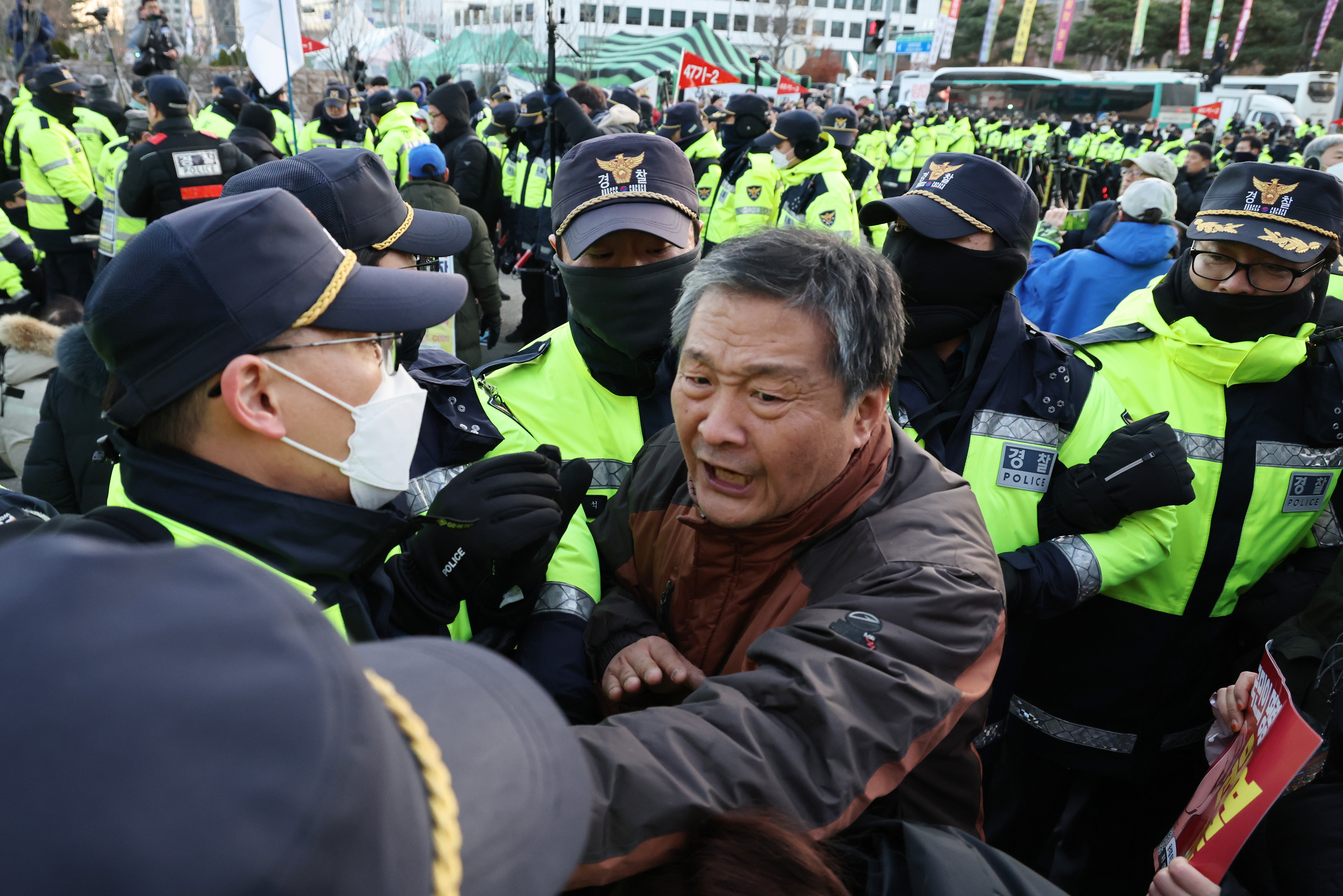
Strained relations at home and abroad
Domestically, Mr Yoon has struggled to navigate a parliament controlled by the opposition Democratic Party, which won a decisive majority in April’s election. Opposition lawmakers have repeatedly blocked his legislative agenda, forcing him to veto bills at an unprecedented rate. Last week, they slashed the government’s proposed budget, leaving Mr Yoon with little room for manoeuvre.
Amidst these political setbacks, Mr Yoon’s approval ratings have remained dismal, with growing calls for impeachment. Opposition leader Lee Jae-myung has called Tuesday’s martial law declaration a “decisive opportunity to break the vicious cycle and return to normal society”.
Internationally, Mr Yoon’s presidency has been a mixed bag. While he has strengthened ties with allies like the US and Japan and provided aid to Ukraine, his hardline stance on North Korea has escalated tensions with Pyongyang.
Critics also accuse him of jeopardising relations with China, South Korea’s largest trading partner.
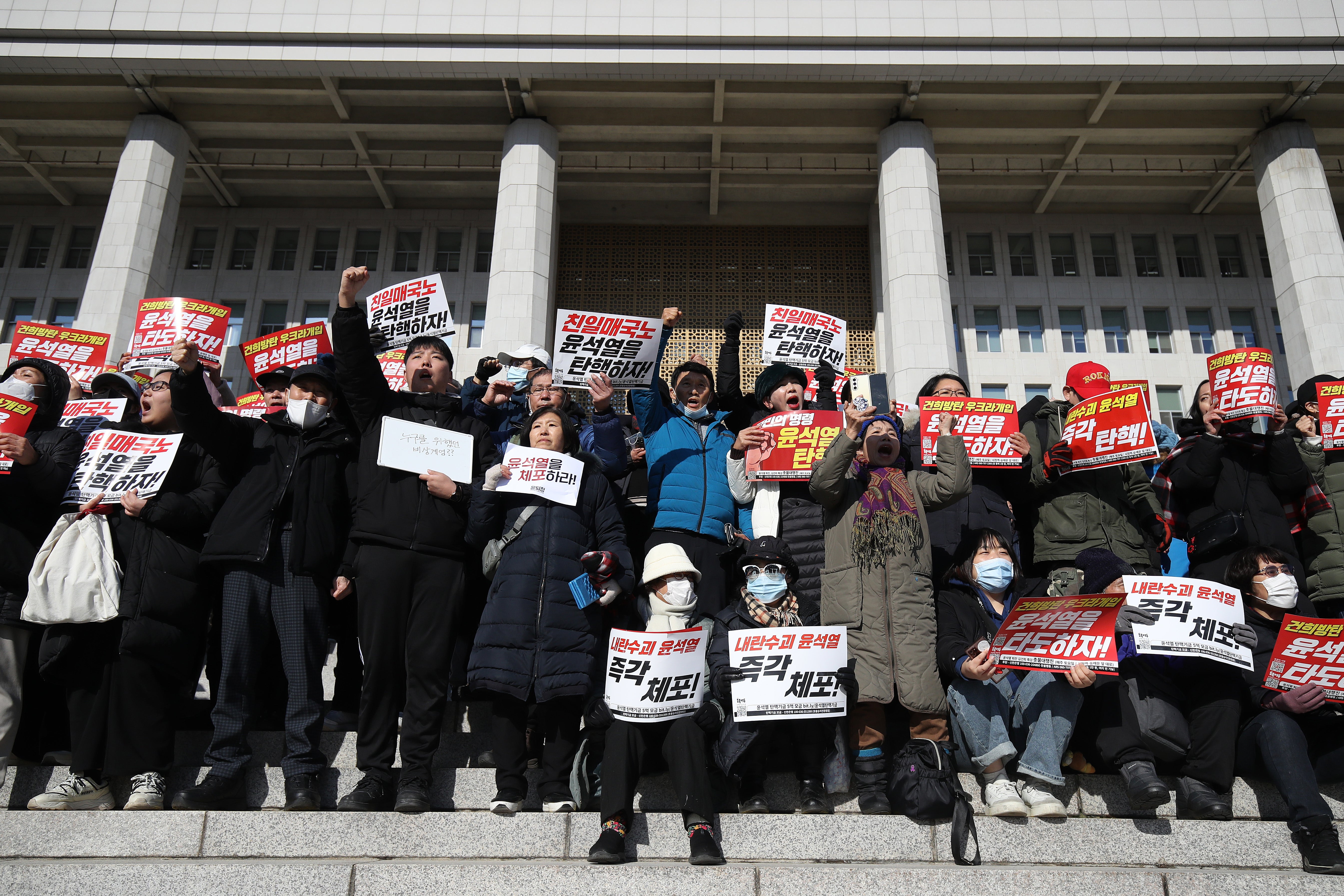
What’s next for Yoon Suk Yeol?
A Seoul court on 29 December issued an arrest warrant sought by prosecutors investigating whether the president’s short-lived declaration of martial law amounted to insurrection.
The warrant, valid until 6 January, was approved after Mr Yoon ignored multiple summons to answer charges of insurrection and abuse of power, accusations that his lawyers called “unlawful”.
But an attempt to arrest Mr Yoon was blocked by his security services, with the Corruption Investigation Office saying the “execution of the arrest warrant was virtually impossible due to the continued standoff”.
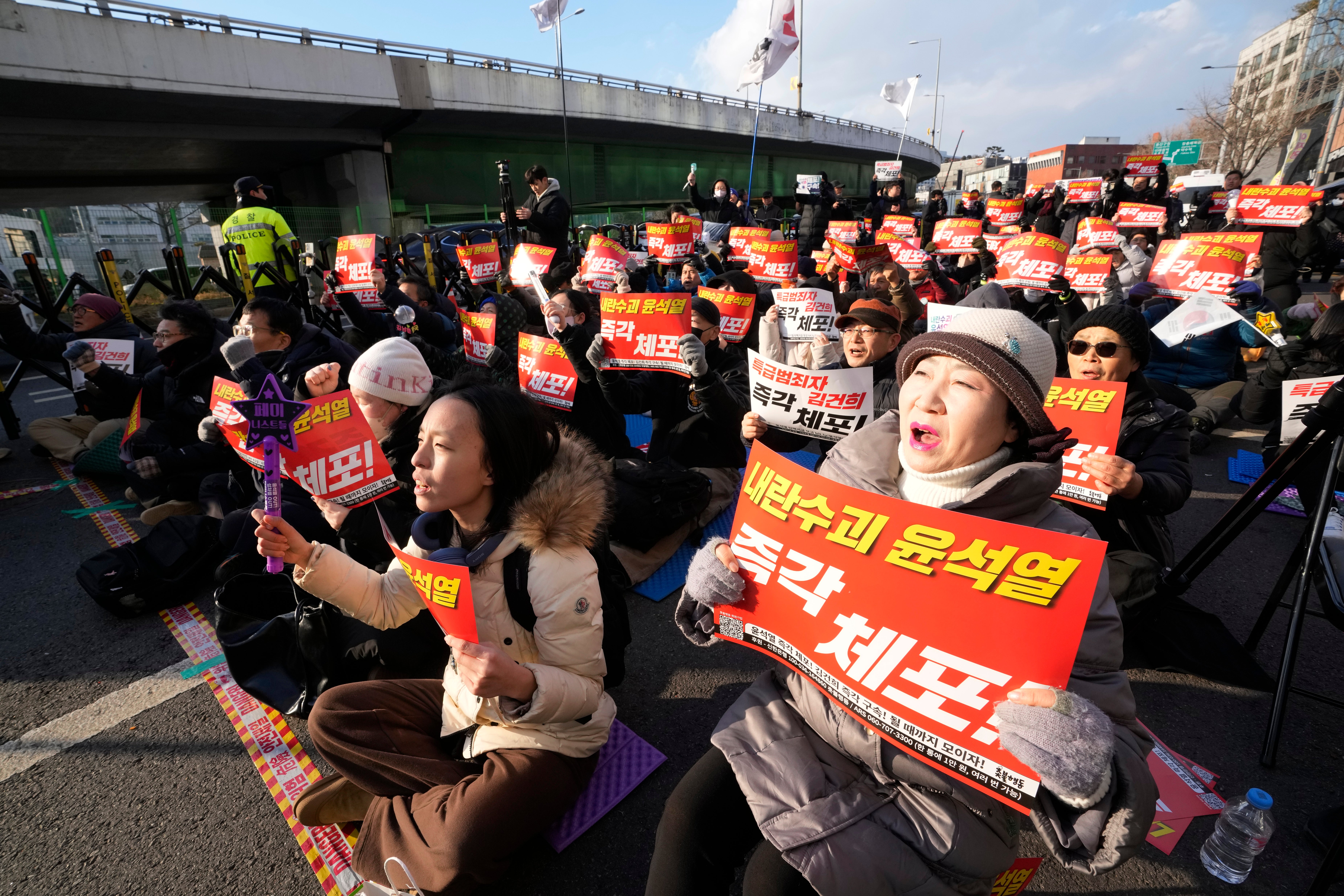
The warrant was extended again on 7 January and the investigators detained him on 15 January after a three-hour standoff with his security guards.
The anti-corruption agency has 48 hours to conduct an investigation. Afterwards, it can either release him or seek a warrant for his formal arrest.
The parliament impeached Mr Yoon on 14 December, concluding that his declaration of martial law violated the constitution. He is suspended from his presidential duties and is awaiting the Constitution Court’s decision on whether he will be removed from office.
Mr Yoon’s latest political gamble has drawn widespread condemnation. His senior aides offered to resign en masse, while opposition lawmakers moved forward with impeachment proceedings. Even leaders within his own party have called for his removal.







